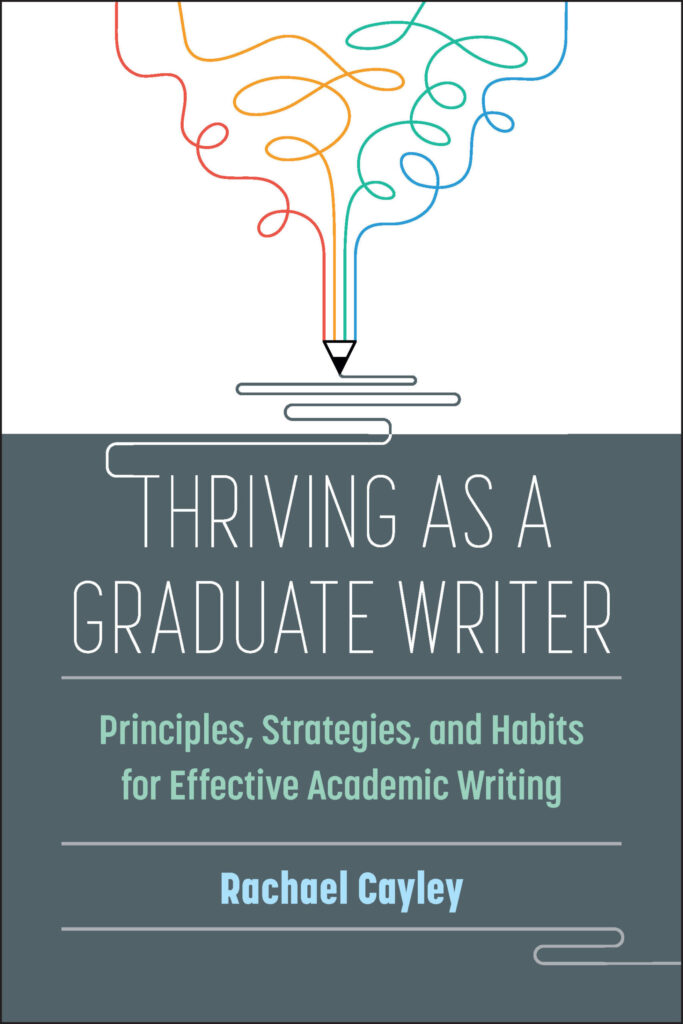Rachael Cayley rethinks graduate student writing in her new book, Thriving as a Graduate Writer

In her book, Thriving as a Graduate Writer: Principles, Strategies, and Habits for Effective Academic Writing, Rachael Cayley aspires to reframe how students think about academic writing.
Cayley, an Associate Professor in the Graduate Centre for Academic Communication at the School of Graduate Studies (SGS), has spent the last decade supporting graduate students with their academic writing. After noticing that students tended to ask a similar set of questions, she started a blog, Explorations of Style, to make her tips and support readily available. Thriving as a Graduate Writer is a culmination of that work and a natural progression, offering practical advice in one easy resource.
“I want students to think of writing as developmental. It’s not something they just know how to do, it’s something they need to be taught,” she says.
“The goal of the book was to give students a short, accessible resource to help them with their academic writing. Unlike in the blog, I can control the order in which students digest the information.”
And so, Cayley starts the book with key principles she hopes might take some of the pressure off of graduate students. In addition to viewing writing as developmental, she wants students to know they are not the only ones struggling. Writing can be cognitively draining and emotionally terrifying. Academic writing is difficult—for everyone.
“It’s not that students are bad writers. Instead, they are novice writers. If they have a developmental mindset, they can think of this as a stage of having to learn to become a competent writer.” Without this approach, students can feel unqualified and alienated. And when they don’t feel good at academic writing, they may not feel good about their research.
“Writing is something you have to do in grad school,” Cayley explains. “Other writers write because they want to. A creative writer has chosen to do it. Graduate students are given no choice – this is how they have to convey the important work that they are doing.”
Which is why the remainder of the book is very practical, providing concrete strategies for students and guidance on how they can build new habits to support their success.
Students will find an outline for a six-step revision process, approaches on how to write clear, energetic, balanced sentences, and a chapter on punctuation patterns.
The final section centres around productivity and includes a series of perspectives on trying to build successful writing habits. But Cayley acknowledges that there are many outside circumstances that are beyond a student’s control and can affect their productivity, like caring for a sick child at home. Cayley hopes that by providing practical options, when students sit down to write, they will find a strategy that works for them.
“I wanted to create a system for students,” she explains. “Academic writing is something you need an approach to, and you need strategies for. You need to build habits around it to be successful. So, even if mine isn’t the approach for you, I hope it builds the argument for having an approach.”
Learn more about the tools and tips in Thriving through the book’s companion website where you can download resources on punctuation, the revision process and productivity strategies, as well as guides on how to use the book in a graduate working group or graduate writing course.

